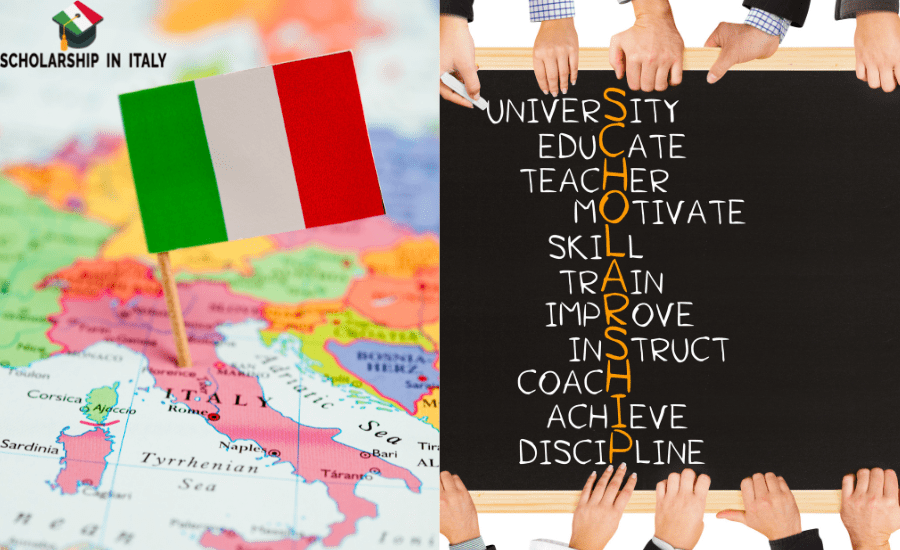Are you considering pursuing a Bachelor’s Degree in Italy? Look no further! This comprehensive guide will provide you with all the essential information you need to know about earning your undergraduate degree in the captivating country of Italy.
Popular Universities and Programs in Italy
Italy boasts a multitude of prestigious universities renowned for their academic excellence. Institutions such as the University of Bologna, Politecnico di Milano, Sapienza University of Rome, Verona University, Venice University, Ancona, and Turin University offer an extensive range of English-taught bachelor’s degree programs for international students. From Artificial Intelligence, Arts and Humanities, Biosciences, Civil Engineering, Economics, European Studies, Law, Nursing, and Political Science, the options are vast and diverse.
Admission Requirements and Process
Gaining admission to a bachelor’s degree in Italy requires meeting specific requirements. International students must submit essential documents, including academic transcripts, language proficiency certificates, and recommendation letters. Familiarize yourself with the application process, deadlines, and any additional considerations to ensure a smooth and successful application.
What are the admission Requirements for Bachelor’s Degree in Italy?
The majority of universities require the following documents for admission to the bachelor’s degree in Italy:
- Identity Document (must not expire or near to expire)
- Passport size photograph
- Diplomas of Secondary School and Higher Secondary School
- Transcripts of Secondary School and Higher Secondary School
- English Proficiency Certificate or International Competency of Language (IELTS)
- Recommendation letters
- Test Results of SAT or TOLC according to subject (most of the programs has restricted access to bachelor’s degree and required to pass admission test)
- Motivational Letter or Statement of Purpose
What is the process to get admission to Bachelor’s degree in Italy?

The process for admission to the bachelor’s degree program in Italy can be categorized into the following steps:
- Find the university according to your field of study!
- Submit the application including the admission test results (if required)
- The decision of submitted application.
- If accepted, proceed for Pre-Enrollment Summary (apply from Universitaly portal), CIMEA or DOV, and Visa File submission.
- Arrive in Italy and get enrolled in university.
Academic Structure and Curriculum
Understanding the academic structure and curriculum of bachelor’s degrees in Italy is crucial for prospective students. Typically, undergraduate programs span three years, divided into 6 semesters or academic years. You’ll encounter a credit-based system 1ith 180 ECTs, with mandatory core subjects, elective courses, and opportunities for specialization in your chosen field. You can explore the Education System in Italy and know more about the different programs offered in Italy.
Scholarships, Grants, and Financial Aid for Bachelor’s Degree in Italy
Financing your education is a significant consideration for many students. Fortunately, there are Fully Funded Scholarships and grants available specifically for international students pursuing a bachelor’s degree in Italy. These financial aid options can alleviate the financial burden and make your academic journey more affordable. The scholarship types can vary but the most offered scholarships are:
- Merit-based Scholarships.
- Need-based scholarships (Regional Scholarships)
- Talent hunt scholarships
- Italian Government Scholarship
- University Scholarships
- Erasmus funding programs
- Study abroad scholarships
- Exchange programs
- Training or Internship abroad scholarships
Additionally, you can explore other avenues, such as student loans and part-time work opportunities also.
Student Life and Cultural Experience in Italy
Immersing yourself in the vibrant student life and cultural experiences that Italy offers is an unforgettable part of the educational journey. Engage in extracurricular activities, join student organizations, and participate in clubs to make lasting connections. Furthermore, relish the rich Italian culture, savor the delectable cuisine, and explore the breathtaking tourist attractions during your study abroad experience.
Career Prospects and Job Opportunities
Italy presents a promising landscape for career prospects and job opportunities. Graduates from Italian universities possess valuable skills and knowledge sought by employers both in Italy and internationally. Many institutions provide internships, job placement services, and industry connections to support student’s transition into the professional world.
Living Costs, Accommodation, and Visa Requirements
Understanding the living costs and accommodation options in Italy is essential for financial planning. Consider factors such as housing, utilities, transportation, and daily expenses to estimate your budget accurately. Additionally, familiarize yourself with the visa requirements for international students, ensuring a smooth entry and stay in Italy throughout your academic journey.
How much is the Living Cost in Italy?
To estimate living costs for students in Italy, several factors come into play. Accommodation costs depend on the type of housing, such as shared apartments or university dormitories, and can range from €300 to €600 per month. The accommodation cost varies as shared, single room, or apartment wise. Food expenses typically amount to €150 to €200 per month, considering groceries and occasional dining out. Transportation costs are relatively affordable, with discounted rates for students on public transportation systems. Additional expenses include utilities (electricity, water, internet), health insurance, and leisure activities. It’s essential to plan a budget of approximately €800 to €1,200 per month, considering personal preferences and the specific city or region in Italy.
What are the Visa Requirements for International Students in Italy?
International students planning to study in Italy must be aware of the visa requirements to ensure a smooth entry and stay in the country. The specific visa category for students is the “Study Visa” or “Student Visa” (D-Type Visa). A complete guideline about Italy visa types and requirements can be helpful for you to understand the process.
To obtain this visa, students must first be accepted into a recognized Italian educational institution. Once accepted, they can apply for a Study Visa at the Italian embassy or consulate in their home country.
The required documents typically include a valid passport, passport-size photographs, an acceptance letter from the university, proof of financial means to support their stay, health insurance coverage, pre-enrollment summary, CIMEA or DOV, flight and accommodation bookings, and a completed visa application form.
It’s important to note that the visa application process can take several weeks or even months, so it’s advisable to apply well in advance of the intended study start date. Additionally, students may be required to undergo a visa interview at the embassy or consulate.
Once in Italy, students must also obtain a residence permit or Permesso di Soggiorno within 8 days of arrival. This permit allows them to legally stay in the country for the duration of their studies. It’s essential for international students to familiarize themselves with the specific visa requirements and regulations, as they may vary slightly depending on the student’s home country and the duration of their study program.
Tips for a Successful Application and Study Experience
Preparing a strong application package is crucial for securing admission to your desired program. Highlight your academic achievements, demonstrate your passion for your chosen field, and present compelling recommendation letters. Once accepted, make the most of your study experience by actively engaging in coursework, seeking mentorship opportunities, and embracing the Italian academic and cultural environment.
Wrapping Up!
Congratulations! You are now equipped with a comprehensive guide to pursuing a Bachelor’s Degree in Italy. From choosing the right university and program to navigating the admission process, understanding the academic structure, and enjoying the vibrant student life, Italy offers an enriching educational experience. Embrace the opportunities that await you and embark on a journey of knowledge, cultural immersion, and personal growth.
FAQs
Can international students pursue a Bachelor’s Degree in Italy?
Yes, international students can pursue a Bachelor’s Degree in Italy. The country offers a wide range of undergraduate programs at renowned universities.
Are there scholarships available for international students pursuing a Bachelor’s Degree in Italy?
Yes, there are scholarships and grants available specifically for international students studying in Italy. These financial aids can help alleviate the financial burden of tuition fees and living expenses.
What is the language of instruction for Bachelor’s Degree programs in Italy?
The language of instruction for Bachelor’s Degree programs in Italy is primarily Italian. However, some universities also offer programs taught in English, especially in fields like business, engineering, and international studies.
What is the cost of living for international students in Italy?
The cost of living in Italy varies depending on the city and personal lifestyle. It includes expenses such as accommodation, food, transportation, utilities, and leisure activities. It’s important to budget and plan accordingly to manage living costs effectively.


